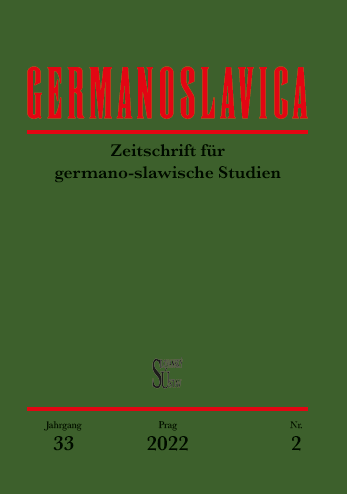„Auflehnung gegen das Schicksal und nicht mehr zu Ändernde“. Das Prosawerk von Leo Perutz im literaturhistorischen Kontext
“Revolt against destiny and that which we can no longer change”. The Novels of Leo Perutz in Literary-Historical Context
Author(s): Dana PfeiferováSubject(s): Language and Literature Studies, Jewish studies, Studies of Literature, Jewish Thought and Philosophy, Czech Literature, German Literature
Published by: AV ČR - Akademie věd České republiky - Slovanský ústav and Euroslavica
Keywords: Leo Perutz; Dritte Kugel; Der Meister des Jüngsten Tages; Nachts unter der steinernen Brücke; inverted initiation novel; cabbalistic mysticism;
Summary/Abstract: Can Leo Perutz’s novels, either in terms of motifs or structure, be regarded as Prague German literature, even though they were written first in Vienna and later in Tel Aviv? His most successful novels Der Meister des Jüngsten Tages (1923) and St. Petri Schnee (1933) arguably include, similar to Gustav Meyrink’s early works, occult motifs, and apply, as Franz Kafka does in Das Schloss, the structure of an inverted initiation novel. Nachts unter der steinernen Brücke (1953) takes place at the time of Emperor Rudolf II, the favourite Habsburg of the German authors of Prague (see Tycho Brahes Weg zu Gott by Max Brod or Der Engel des westlichen Fensters by Gustav Meyrink). In contrast to the adventure novels of the inter-war period, which may perhaps seem trivial, Perutz’s last book is characterized by its refined composition and a return to cabbalistic mysticism.
Journal: Germanoslavica
- Issue Year: XXXIII/2022
- Issue No: 2
- Page Range: 42-65
- Page Count: 24
- Language: German

